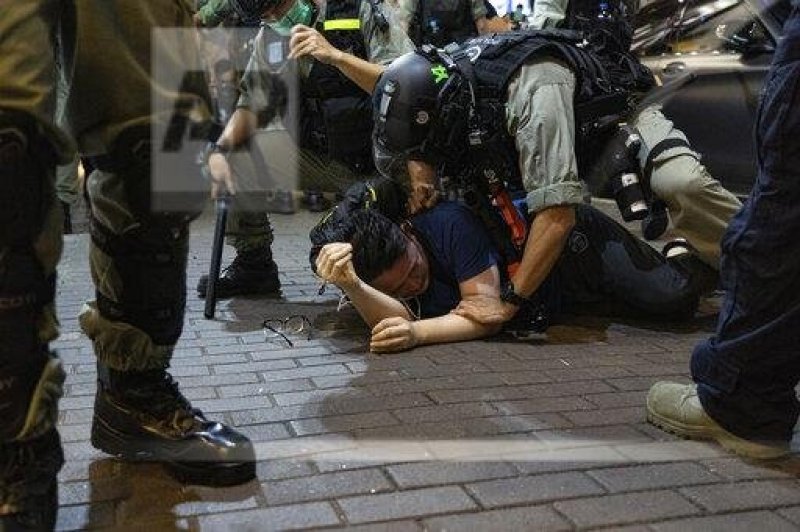
Hong Kong police made a mass arrest of some 230 people at protests on Mother's Day. The anti-government protests, sparked by the now-withdrawn extradition bill last June that would have allowed criminal suspects to be sent to mainland China to face trial, have picked back up in the city after weeks of under a coronavirus-related lockdown.
On Sunday, hundreds of people gathered in shopping malls chanting slogans and singing protest songs, while a smaller group of protesters tried to block roads by setting trash on fire in Mong Kok as dusk fell. Police said a 22-year-old man was found to have materials believed to be intended for making petrol bombs.
Police stated about 230 protesters between the ages of 12 and 65 were arrested and charged with unlawful assembly, "possessing anything with intent to destroy or damage property" and failure to produce proof of identity and various other violations.
Another 19 people were ticketed for having violated the Prevention and Control of Disease Regulation, the law that forbids gatherings of more than eight people in any public space. The nighttime street action followed multiple protests at shopping malls earlier in the day.
The authority made a statement, "Police condemn protesters for disregarding the Government's disease prevention and control measures, and participating in or organizing prohibited group gatherings."
Police also fired pepper spray at journalists and activists, and conducted a stop and search operations on members of the public and media.
The Hong Kong Journalists' Association (HKJA) said some members of the press were prevented from filming. "Some journalists who were sprayed by pepper spray were not allowed to receive immediate treatment, and they were requested to stop filming," said Chris Yeung, chairman of the HKJA.
During the action, there were some casualties as the Hospital Authority said 18 people were taken to hospital.
Meanwhile, Political scientist Dr Edmund Cheng Wai, of City University, warned that mass arrests would only backfire. "The more people you arrest, the more will be angered," he said, adding that more arrests alone would be unlikely to end protests. "It will sow more seeds of hatred."
There have been widespread concerns amongst democracy advocates in Hong Kong that restrictions put in place to slow the spread of the pandemic will be used by China to further chain down on rights. For example, a contact-tracing app meant to control who comes into contact with infected people may be used to target anti-Beijing protestors, activists have warned.



















